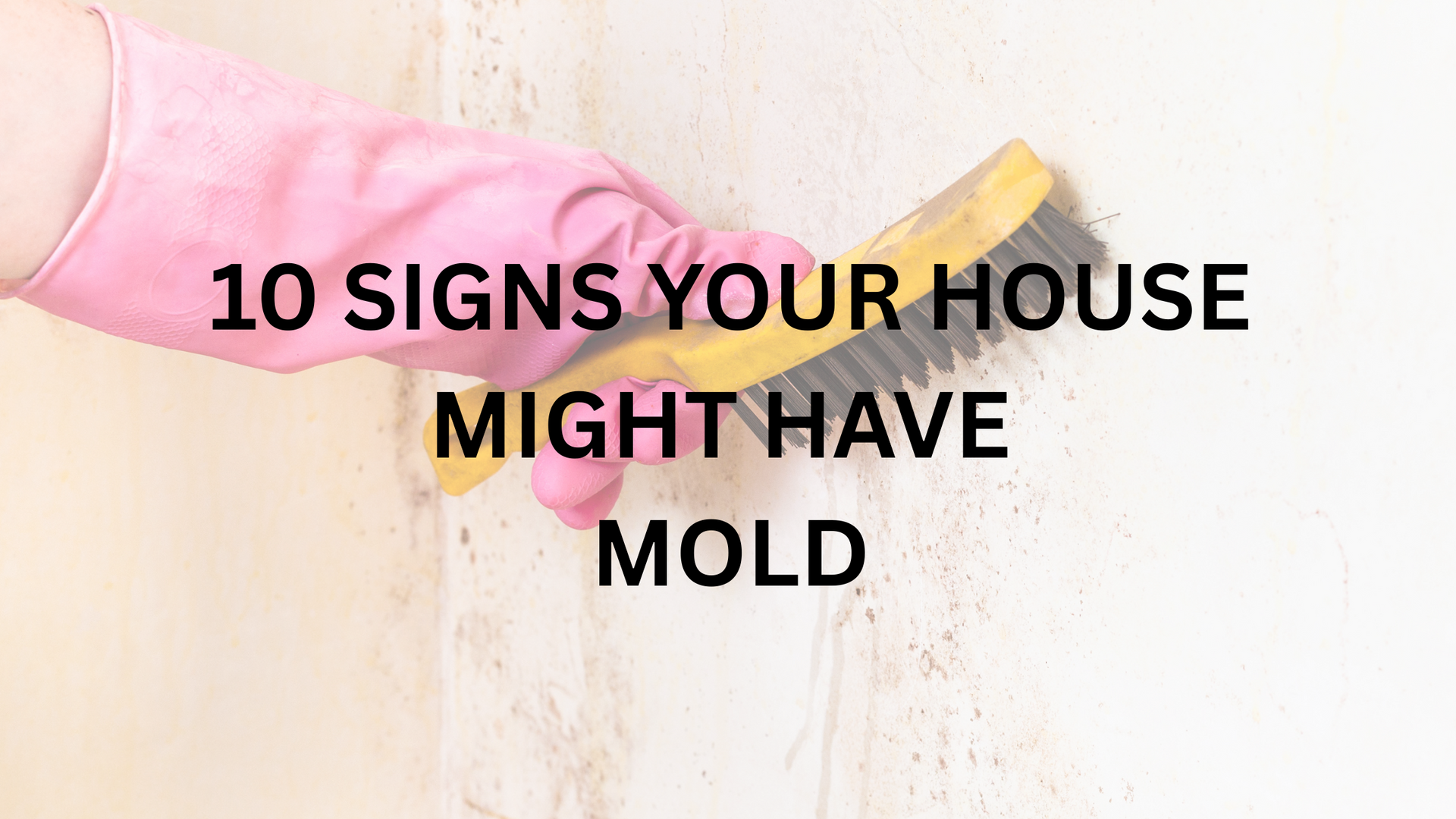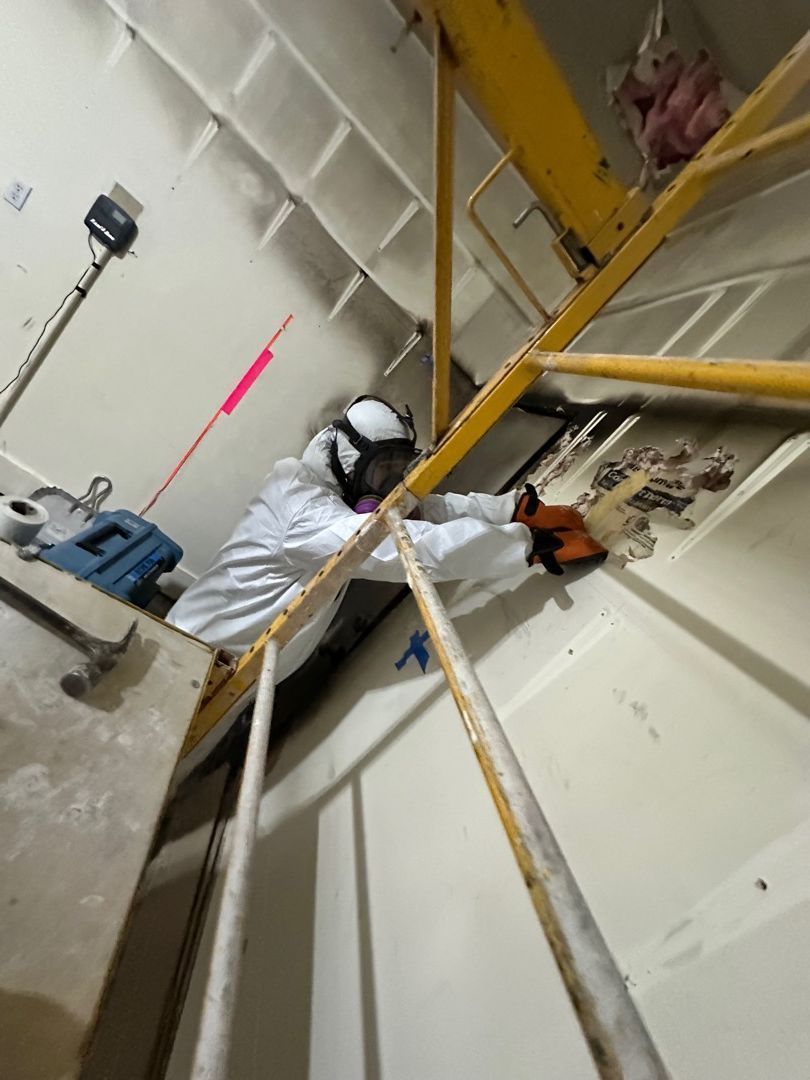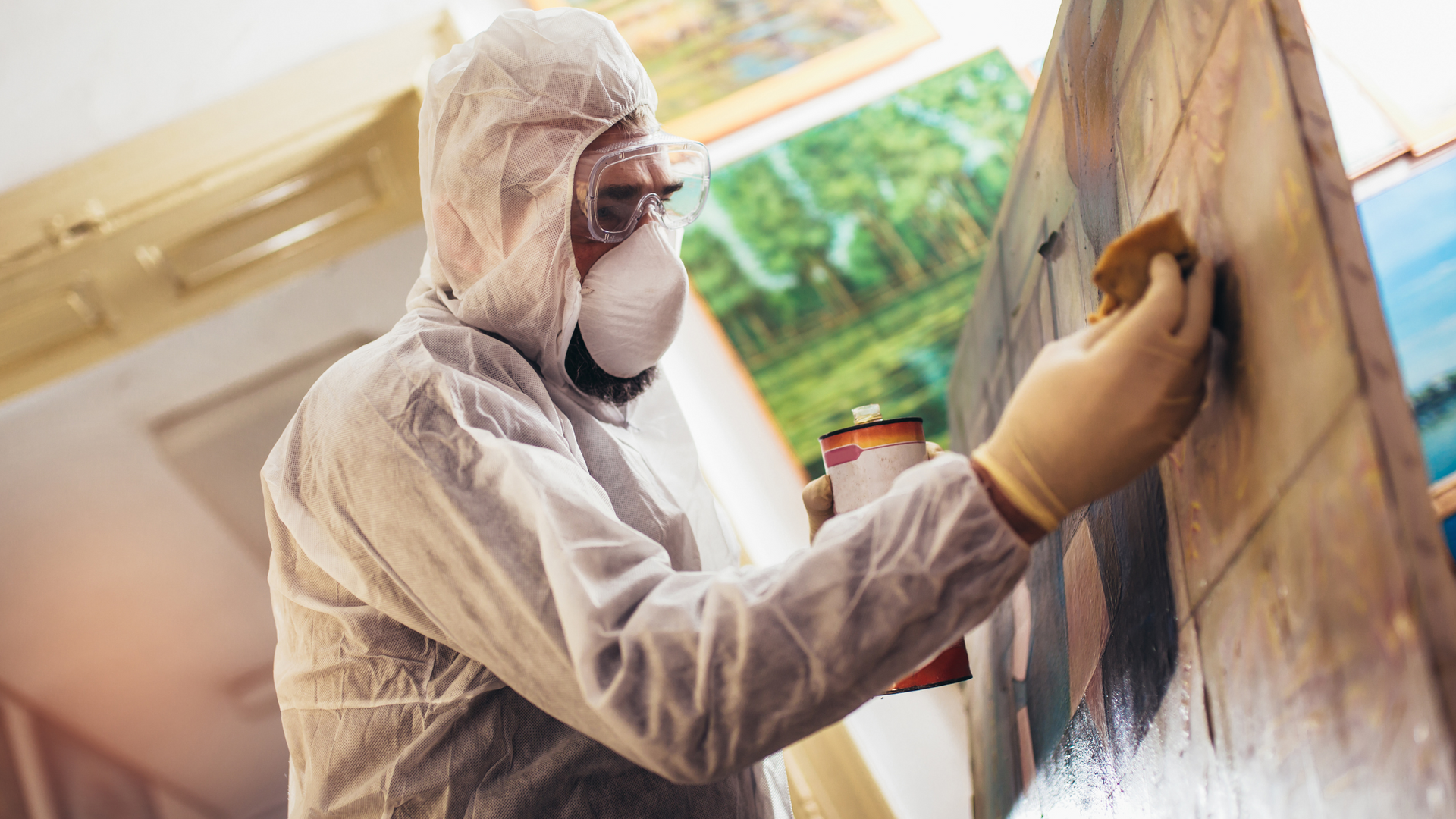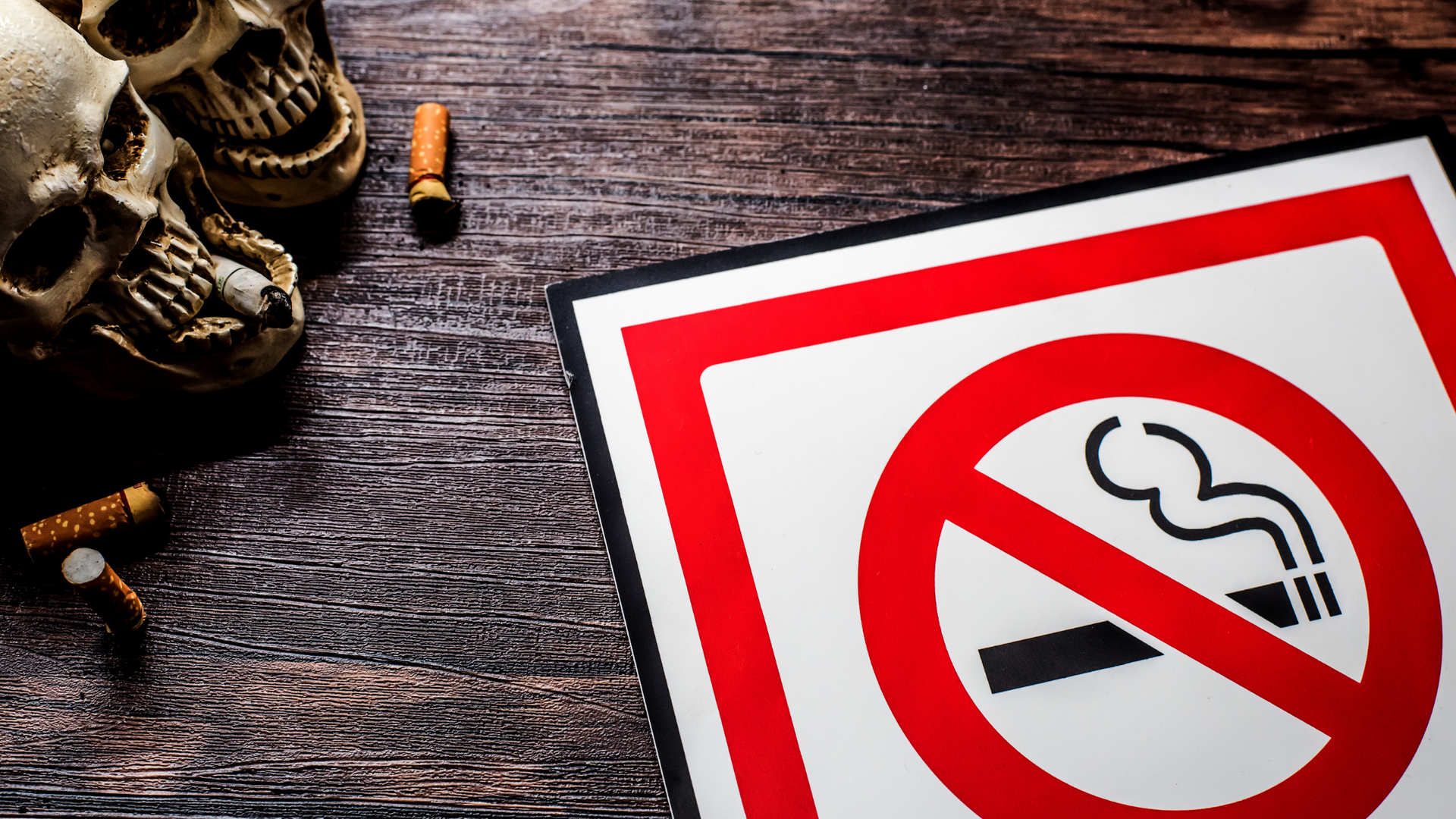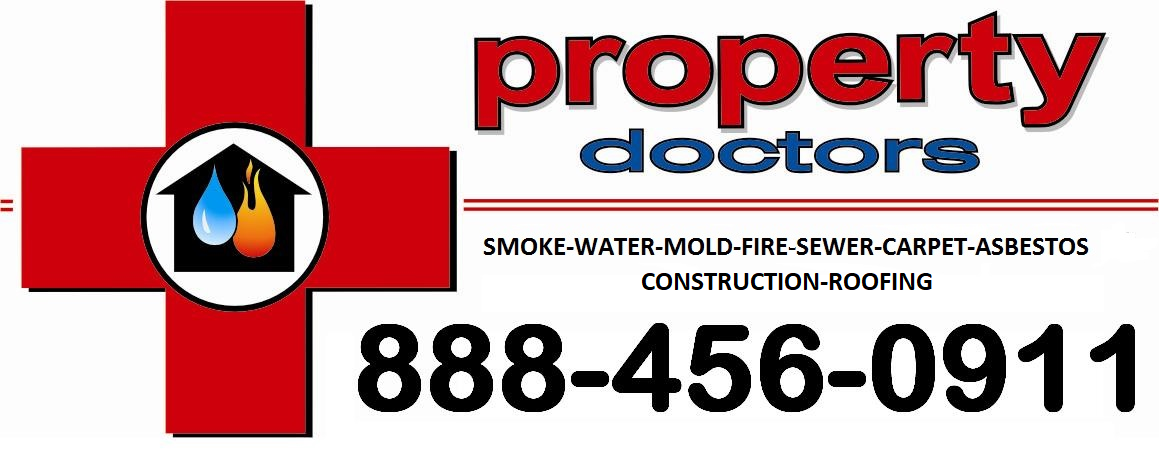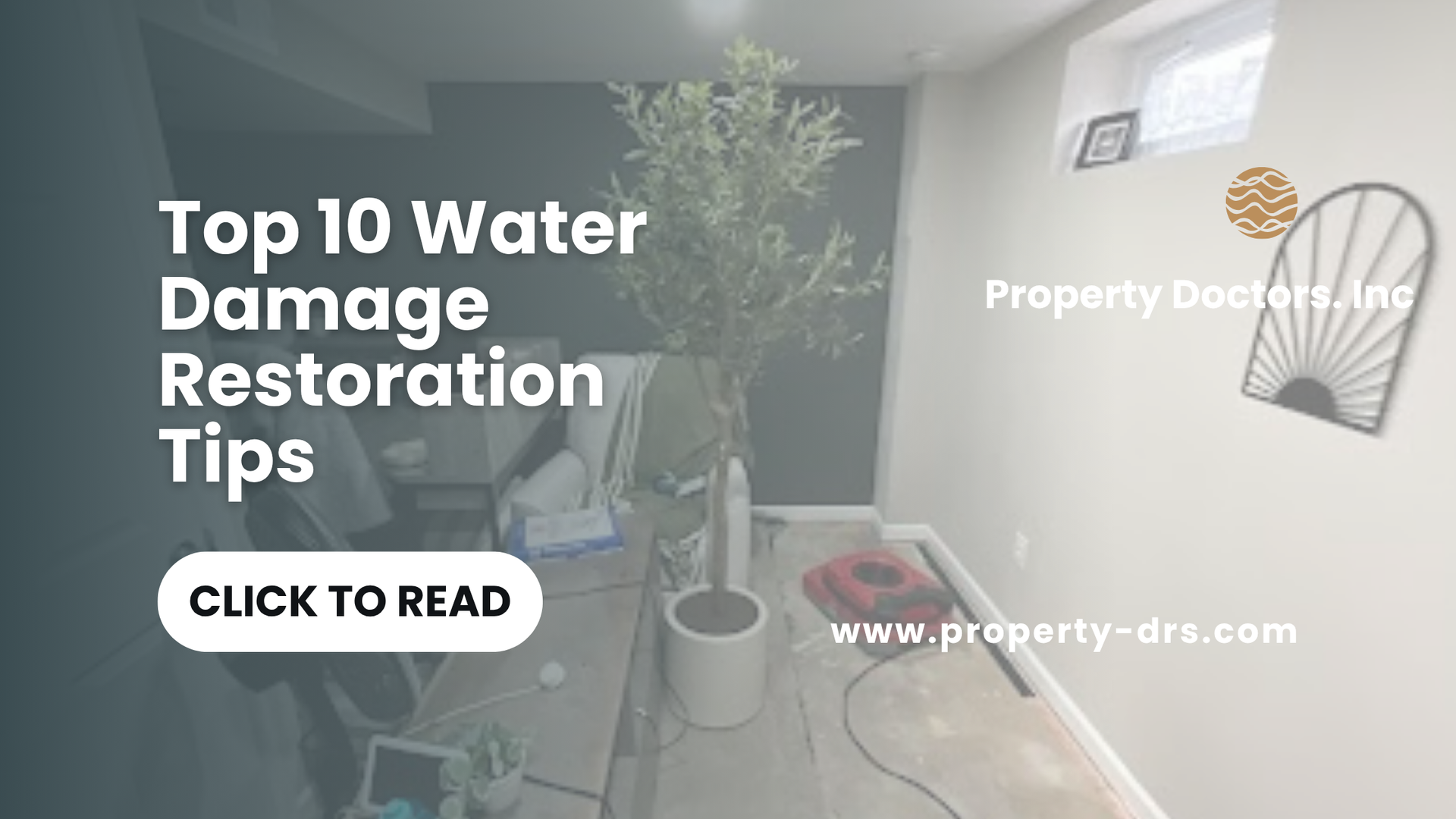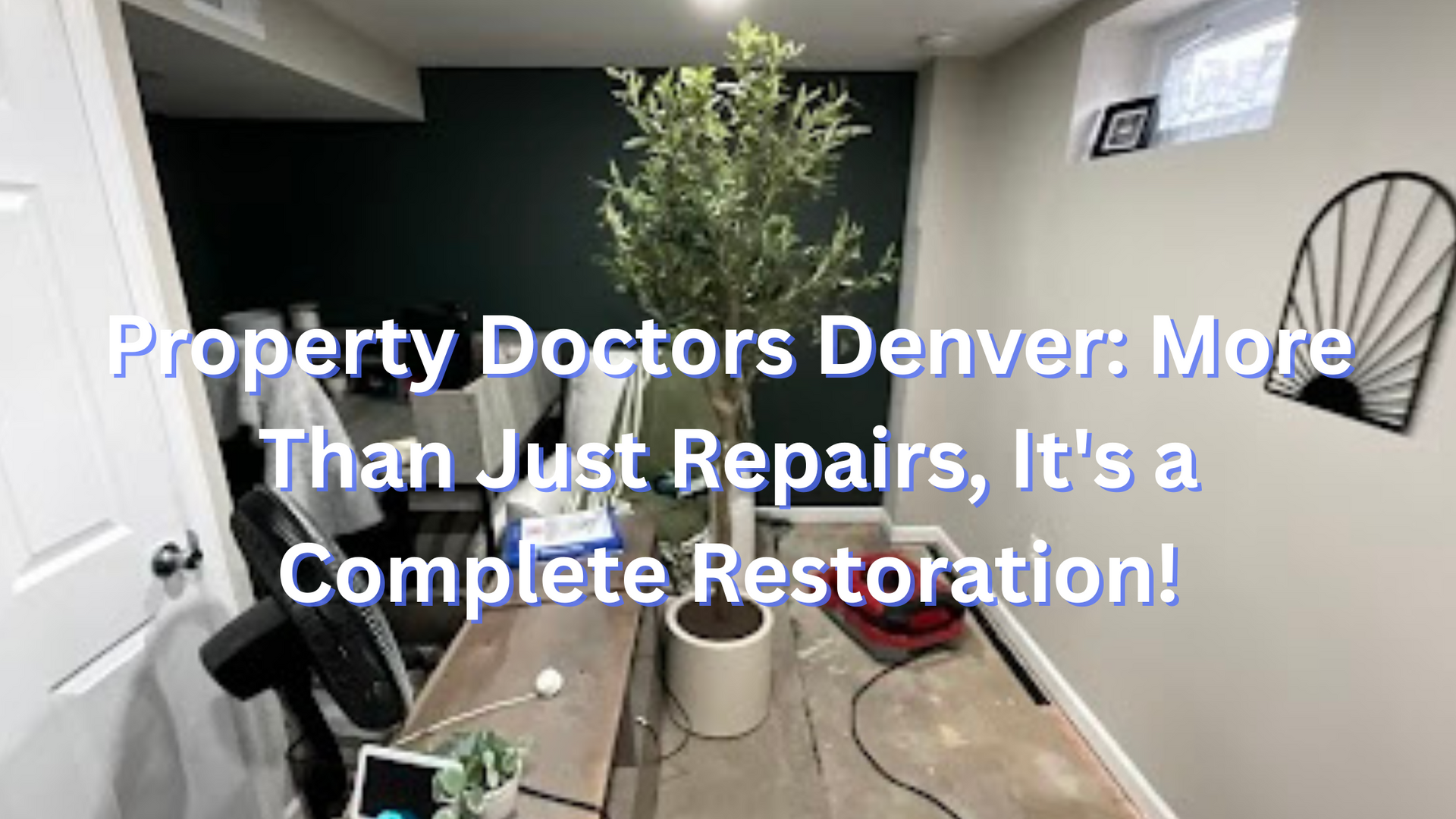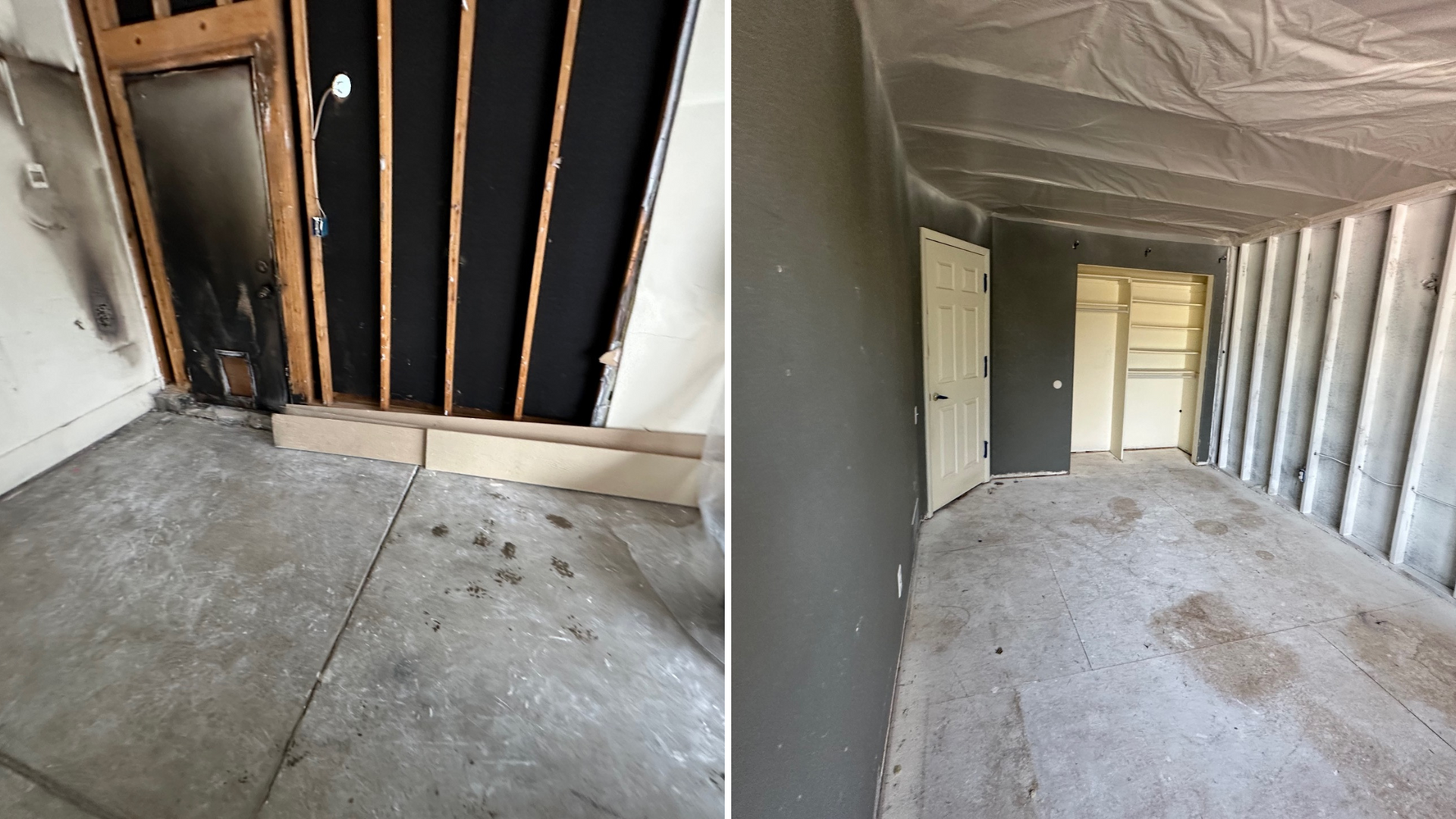1. Musty, Damp Odors
One of the most common signs of mold is a persistent musty odor. If your home smells damp or earthy, especially in areas like the basement, attic, or behind walls, there’s a good chance that mold is present. Mold emits spores that have a distinctive smell that doesn't dissipate with normal cleaning or ventilation. If you notice this scent in your Denver home, it’s time to investigate further.
2. Visible Discoloration on Walls or Ceilings
Mold can often be seen on walls or ceilings as black, green, or yellowish spots. These spots are often a sign that mold is growing behind or on the surface. In Denver, with its cool, dry winters and humid
summer afternoons, moisture
can build up in areas like bathrooms
and basements, leading to visible mold growth. If you spot discoloration or stains on your walls, it could be time to call Property Doctors
for a mold inspection.
3. Water Stains or Leaks
Water stains on ceilings or walls can indicate a past or ongoing leak, and if moisture is left unchecked, mold can begin to grow. These stains are often found around windows, pipes, and roof leaks—areas that are vulnerable to water intrusion, especially after Colorado’s spring snowmelts
or summer storms. Even if the leak is small, mold can still grow if moisture is present for long periods.
4. Increased Allergy Symptoms
If you or your family members are suddenly experiencing increased allergy-like symptoms—such as sneezing, runny nose, or eye irritation—when inside your home, mold might be the culprit. Mold spores can irritate the respiratory system, leading to chronic symptoms, especially in vulnerable individuals, such as children or the elderly.
If these symptoms worsen in specific areas of the home, like the basement or bathroom, it's time to consider the possibility of mold contamination.
5. Peeling Paint or Wallpaper
Moisture behind your walls can cause paint to peel or wallpaper to bubble. Mold
needs moisture to thrive, and as it absorbs water from walls, it can cause the surface to warp, crack, or peel. In Denver, the changes in humidity levels throughout the year, especially during the wet spring season, can exacerbate this issue.
6. Soft or Warped Wood
If the wood in your home feels soft, warped, or spongy, it could be a sign that mold is growing inside the wood or beneath it. Wood is particularly vulnerable to mold growth when it’s exposed to moisture. Whether it’s wooden floorboards, beams, or furniture, mold can weaken these materials over time. In Denver, areas with high humidity—such as basements and crawl spaces—are common hotspots for this type of damage.
7. Condensation or Excessive Humidity
Excess humidity is a significant factor in mold growth, especially in homes with poor ventilation. If you notice condensation on windows, walls, or pipes in your Denver
home, it’s a clear sign of excess moisture. High indoor humidity (over 50%) encourages mold growth, especially in poorly ventilated areas like basements, bathrooms, and kitchens.
8. Frequent Musty Smell After Rain or Snowmelt
In Denver, our weather can be unpredictable, and heavy snowstorms followed by rapid snowmelt
can lead to increased moisture levels in your home. If your home has a musty smell or mold becomes visible after these events, it could be a sign that moisture is entering through the roof, windows, or foundation, creating the perfect conditions for mold to flourish.
9. Mold Growing in the Bathroom
Bathrooms are one of the most common places where mold can grow due to high humidity and moisture
from showers and baths. If you notice mold around your shower, toilet, or sink, it’s essential to address it immediately to avoid it spreading. Keep in mind that even small patches of mold in the bathroom can signal a larger issue, especially in hidden spaces like behind tiles or under sinks.
10. Water Damage from Recent Leaks or Flooding
Water damage, whether it’s from a burst pipe, roof leak, or flooding, can create ideal conditions for
mold growth. If your home has experienced water damage recently, either from a storm or a
plumbing issue, mold can start to grow within 24 to 48 hours. In Denver, with our fluctuating seasons and heavy spring snowstorms, it’s essential to check for mold in areas that have experienced recent water damage.
What to Do if You Notice Mold in Your Home
If you notice any of these signs of mold in your Denver home, don’t wait for the problem to escalate. Ignoring mold growth can lead to health risks, structural damage, and expensive repairs. Here’s what you should do:
- Call Property Doctors:
Our mold remediation experts
are here to assess your home, identify the source of moisture, and provide effective mold removal services.
- Isolate the Area: Avoid spreading mold spores by limiting access to the affected area. Close doors and seal off vents if possible.
- Address Moisture Sources: Mold
thrives where moisture exists. Make sure to fix any leaks, improve ventilation, or use dehumidifiers to reduce moisture levels.
Why Choose Property Doctors for Mold Remediation in Denver?
At Property Doctors, we specialize in mold inspection and remediation services across Denver and surrounding areas. Here’s why homeowners trust us:
- Certified Experts: Our team is IICRC-certified, meaning we adhere to the highest industry standards
- Advanced Equipment: We use state-of-the-art tools to locate, remove, and prevent mold growth in your home.
- 24/7 Emergency Service: Mold issues don’t wait for business hours. We provide prompt, round-the-clock services to protect your home
- Insurance Support: We work directly with your insurance company to make the claims process smooth and efficient.
If you suspect mold in your Denver home, don’t wait for the problem to worsen. Contact
Property Doctors
today at (888-456-0911
) for professional
mold remediation services.
